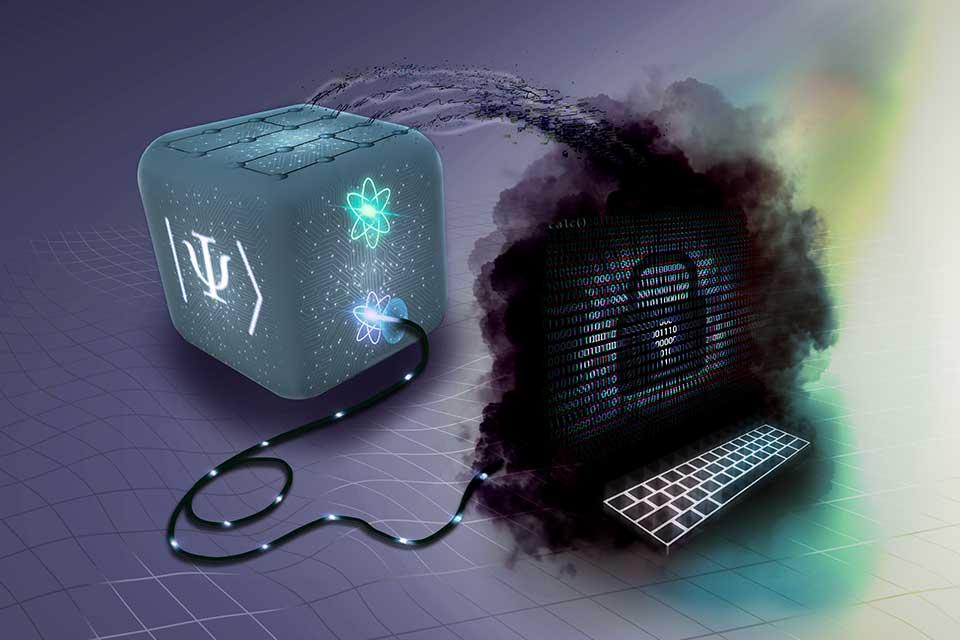The full power of next-generation quantum computing could soon be harnessed by millions of individuals and companies thanks to a breakthrough by scientists at Oxford’s Department of Physics guaranteeing security and privacy. The advance promises to unlock the transformative potential of cloud-based quantum computing and is detailed in a new study published in Physical Review Letters.
Quantum computing is developing rapidly, paving the way for new applications which could transform services in many areas like healthcare and financial services. It works in a fundamentally different way to conventional computing, and is potentially far more powerful, but currently requires controlled conditions in specialist centres. This has raised concern over the authenticity of data and the effectiveness of current security and encryption systems.
Several leading providers of cloud-based services, like Google, Amazon, and IBM, already separately offer some elements of quantum computing. Safeguarding the privacy and security of customer data is a vital precursor to scaling up its use, and for new applications as the technology advances. This latest study addresses these challenges.
‘We have shown for the first time that quantum computing in the cloud can be accessed in a scalable, practical way which will also give people complete security and privacy of data, together with the ability to verify its authenticity,’ comments Professor David Lucas, who co-leads both the Oxford University Physics team and the UK’s Quantum Computing and Simulation Hub, also based at Oxford University Physics.
In the new study, the researchers use an approach known as ‘blind quantum computing’, which connects two totally separate quantum computing entities – potentially an individual at home or in an office accessing a cloud server – in a completely secure way. Importantly, their new methods could be scaled up to large quantum computations.
The researchers created a system comprising a fibre network link between a quantum computing server and a simple device detecting photons at an independent computer accessing its cloud services at a distance. This allows so-called blind quantum computing across a network. Every computation incurs a correction which must be applied to all that follow and needs real-time information to comply with the algorithm; to achieve this capability, the researchers used a unique combination of quantum memory and photons.
‘Using blind quantum computing, clients can access remote quantum computers to process confidential data with secret algorithms and even verify the results are correct, without revealing any useful information,’ adds study lead Dr Peter Drmota. ‘Realising this concept is a big step forward in both quantum computing and keeping our information safe online.’
‘Never in history have the issues surrounding privacy of data and code been more urgently debated than in the present era of cloud computing and artificial intelligence,’ continues Professor Lucas. ‘As quantum computers become more capable, people will seek to use them with complete security and privacy over networks – our new results here mark a step change in capability in this respect.’
The research was funded by UKRI EPSRC, via the UK Quantum Computing and Simulation (QCS) Hub, part of the UK National Quantum Technologies Programme. Scientists from the UK National Quantum Computing Centre, Paris-Sorbonne University, University of Edinburgh, and University of Maryland, collaborated on the work.
Verifiable blind quantum computing with trapped ions and single photons, Drmota et al, Physical Review Letters

